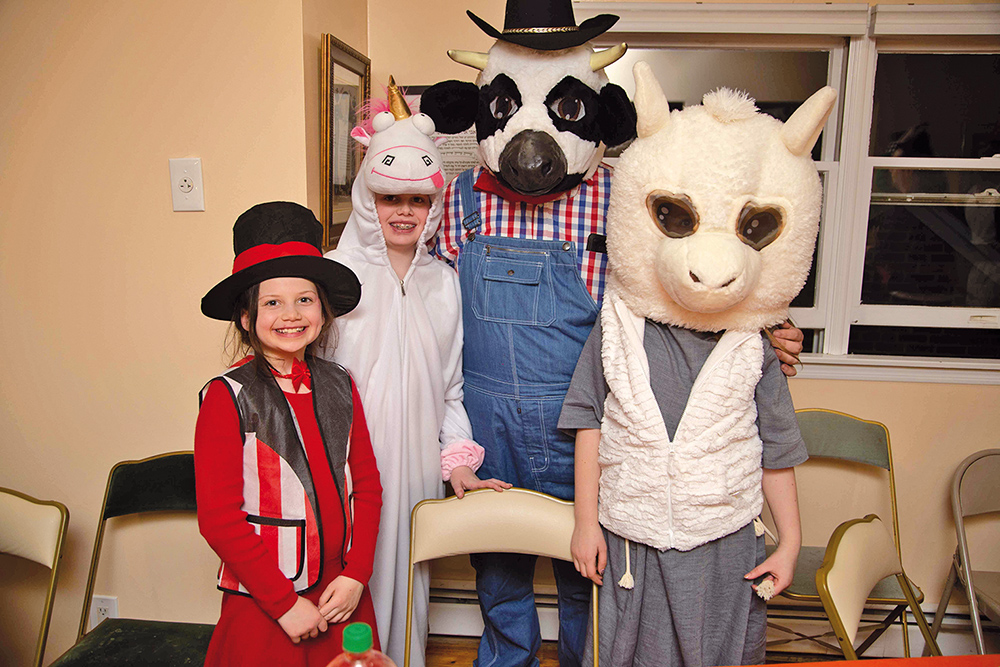On Monday evening, September 11, The Rabbi Fabian Schonfeld Adult Education Center featured an inspiring lecture by Rabbi Shay Schachter at the Young Israel of Kew Gardens Hills. Rabbi Schachter is the Rosh Beis Midrash at the Young Israel of Woodmere, overseeing its extensive adult educational programs. He is the Rabbi and spiritual leader of Yachad, the Orthodox Union’s international program for individuals with disabilities.
Rabbi Daniel Rosenfelt, Rav of the Young Israel of Kew Gardens Hills, welcomed everyone to the program. Rabbi Schachter began by speaking about forest fires that raged in Yerushalayim two years ago. The government had a hard time controlling the fires because they were spreading so fast. He shared a story about a family that had to leave their home in Beit Meir, and the father said they had just moved to that neighborhood. The father shared that it is hard to describe the feeling when you look outside and all you see are billows of smoke. They had only a few seconds to figure out what they would throw into the car and take away with them. What was most important? It was like his whole life was flashing in front of him and he had to decide what to take. The family threw a few things into the car and jumped in and sped away. Later, the man examined the items he had taken. He had his talis and t’filin, a siddur, and other s’farim. He realized what is valuable to him in his life. There are certain crucial items in his life. The other items were not essential.
Rabbi Schacter then asked, “What would you take? What can you leave behind? What provides you with meaning and sincere satisfaction and joy?”
He shared that people are working on ways to extend their physical life. Why is life so important? What gives long-lasting satisfaction in life? In Gemara Avodah Zarah, Elazar ben Durdaya is involved in the most immoral acts. He realizes how far off he is and decides to become a baal t’shuvah. He cried and experienced remorse. When he died, a bas kol came out and announced that he had gained Olam HaBa. His t’shuvah was accepted.
The Gemara says that when Rebbe heard this, he cried. The question is why did Rebbe cry when he heard this? It showed the power of t’shuvah that in one moment of deep introspection everything can change. Why did he cry? The Magid MiMezeritch answers that he cried because he looked at the wasted life that Elazar ben Durdaya lived. It was sad that he had no meaning in his life.
Rabbi Schachter posed the question, “What is life really for? Is it just for obtaining Olam HaBa?
We lack the understanding that life is a journey. It’s a relationship and it has meaning. It is sad that every moment of Elazar ben Durdaya’s life was wasted.
“Life is about a meaningful, purposeful relationship with Hashem. It’s about building something.”
He shared that we read the haftarah about Chanah on Rosh HaShanah. Chanah, Sarah, and Rachel were all remembered to have a child on Rosh HaShanah.
The story of Chanah teaches us the power of t’filah. The Midrash teaches that she said to Hashem, “Let’s be honest. You have an army up there and an army down here. We are all supposed to be in Your service down here. I have a job to bring glory to Hashem, which is the same job as the angels. I want to know: Am I part of the army up there or the army down here? If You expect me to be here serving in this army, then You should provide me with the things a person needs in the earthly army.” She told Hashem that she wanted to serve Him properly and she couldn’t do this without a child.
The Gemara says that Rosh HaShanah reminds us of the power of sincere t’filah. When we cry out to Hashem that we need His help, then it is possible for Hashem to respond positively. Chanah told Hashem that, if He granted her a child, she would raise him to understand the merit of every moment and that it must be spent in a meaningful way.
When we ask Hashem for life, we should ask in the same way. We say: We pledge that if You give me life, then I will live a life geared to You, Hashem. We read the haftarah because of the miracle she received and also because of the perspective it gives us on life.
Rabbi Schachter then shared a mashal from the Chofetz Chaim that taught the lesson that we must be sure that when we ask for things, we commit to be invested in a relationship with Him and we show up, so to speak.
Our overall perspective is to have insight to realize that Hashem is the essential presence of our lives. He is in our lives. We ask for a purposeful, meaningful life.
That is what the shofar gadol represents. We need to work hard so Hashem will bring us the true g’ulah.
By Susie Garber
















